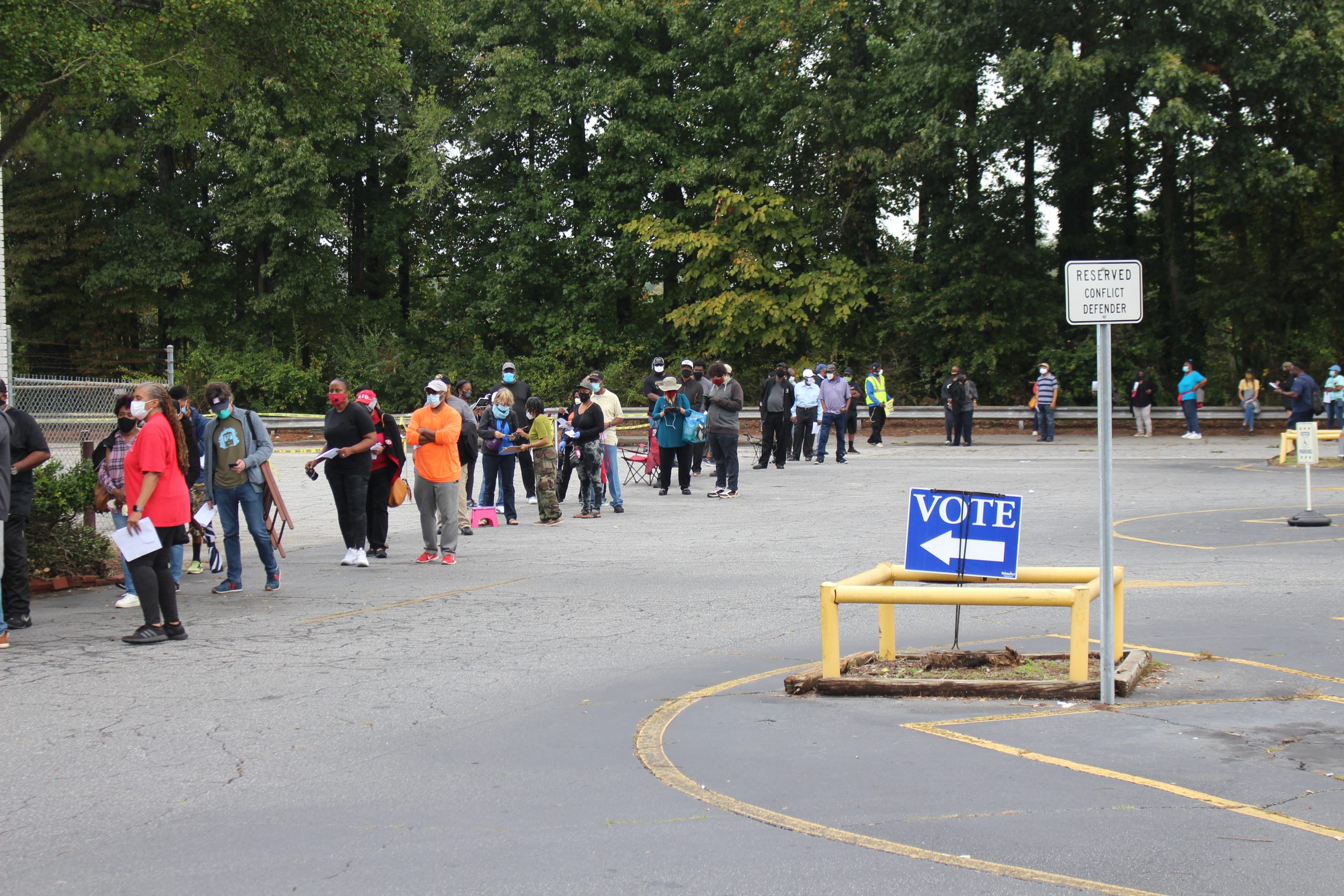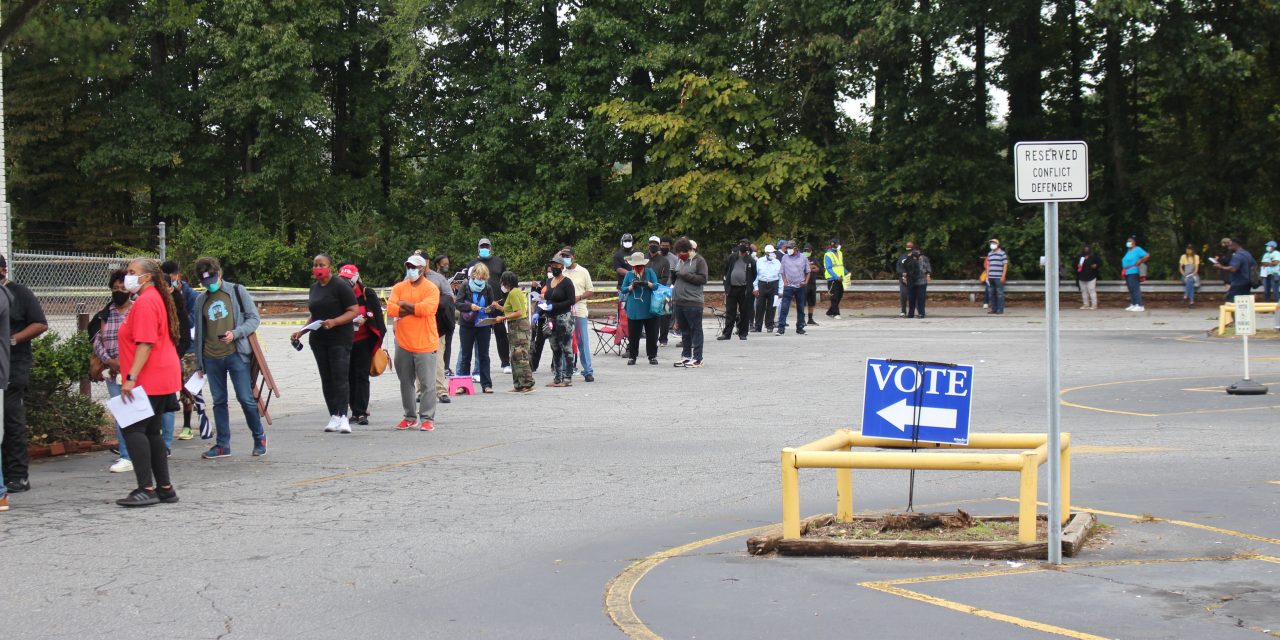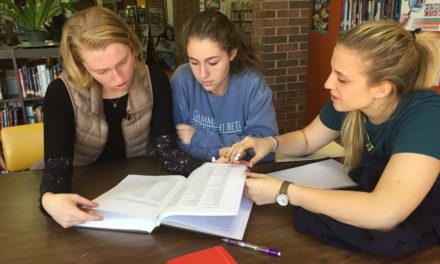As national attention has turned toward Georgia’s Jan. 5 runoff election for two U.S. Senate seats, Emory student political organizations have registered and educated hundreds of students and raised funds for an election that will determine the balance of the Senate.
While on-campus students could vote in person this past November, student political organizations now face an extra obstacle: getting students to vote while away over winter break.
Although President-elect Joe Biden won Georgia in the Nov. 3 general election, no Senate candidate reached the 50% vote threshold required under state law. Two Democratic wins in January would mean a unified Democratic federal government, with a 50-50 partisan balance in the U.S. Senate and Vice President-elect Kamala Harris casting the deciding vote.
The runoffs pit incumbent Republican Senators Sen. David Perdue (R-Ga.) and Sen. Kelly Loeffler (R-Ga.) against respective Democratic challengers Jon Ossoff and Rev. Raphael Warnock, respectively.
Young Democrats of Emory Vice President Eden Yonas (22C) said the club has continued online voter turnout efforts from the presidential election, helping students register to vote ahead of the Dec. 7 deadline. Young Democrats also distributed registration forms throughout campus and offered to return completed ones by mail.
“We’ve been trying to register students as much as possible, and, honestly, the good thing is a lot of students are telling us they’re already registered,” Yonas said. “We’re trying to get those few people left.”
With students home for the break, Yonas said Young Democrats needed to clarify registration guidelines. Students who lived outside of Georgia during the fall semester cannot vote in the runoffs unless they were previously registered in the state.
The election’s timing and COVID-19 have prompted a surge in absentee voting among students. While Yonas has observed some student “reluctancy” to complete the process of requesting and returning mail-in ballots, the political importance of the election has driven student engagement.
“This runoff election just feels like an elongated presidential election because it’s so important and the tensions are still so high,” Yonas said. “People are definitely reaching out more so than I feel like we saw in past years.”
Young Democrats also launched a fundraising initiative on Nov. 10, with proceeds split between the Ossoff and Warnock campaigns. The organization raised $3,040 of their $10,000 goal by press time.
While Young Democrats endorsed Ossoff and Warnock, Yonas urged students to research the candidates’ policy stances. She referred to Young Democrats’ ballot guide and candidates’ websites for further information.
Oxford Young Democrats President Lola Cleaveland (21Ox) wrote in an email to the Wheel that online opportunities have allowed for more collaboration with other organizations.
Like Yonas, Cleveland also noted the small margins in recent elections highlight students’ “electoral power.”
“There is really great momentum in Georgia, and personally, I feel very proud and hopeful being a student in Georgia,” Cleaveland wrote.

Voters line up at the DeKalb County Elections Office to cast their ballot on the first day of early voting for the Nov 3 election. / Isaiah Poritz, Executive Editor
President of Emory College Republicans Jasmine Jaffe (22C) said the organization has also been especially active in the runoff. Leading up to the general election, College Republicans hosted online events, but Jaffe noted efforts were tempered given the group’s lack of support for President Donald Trump.
Emory College Republicans partnered with the Emory Votes Initiative and the Georgia Association of College Republicans to support voter registration and information efforts.
Jaffe noted she was “not super comfortable” collaborating with Young Democrats and Fair Fight on voter registration initiatives.
“Even if we do have common interest in registering people to vote, I think they’re just more partisan in that,” Jaffe said. “It’s not fair to people who just want to be registered to vote.”
Jaffe said the organization has focused on a fundraising initiative launched on Dec. 3, with a goal to send $30,000 to the Senate Leadership Fund, a super PAC dedicated to supporting a Republican majority in the Senate that has spent $59 million campaigning against Ossoff in 2020. Jaffe wrote in an Dec. 4 email to the Wheel that she was unable to give an accurate current estimate of raised funds.
While the College Republicans have not officially endorsed candidates in the runoff, Jaffe said the organization is supporting Loeffler and Perdue with the understanding that the Senate races are “vitally important” with their potential to maintain a Republican majority in the chamber.
“We didn’t really focus on the presidential election in the general election and right now we’re trying to focus on the Senate,” Jaffe said, “We’re being much more active. We never had raised money for a political campaign in the past.”
Emory Fair Fight has also worked with Young Democrats to register students for the runoff. Emory Fair Fight President Alexis Greenblatt (21C) also noted increased enthusiasm from students.
“From August to October, I turned in 200 voter registration forms,” Greenblatt said. “But in the past two weeks we’ve turned in almost 300.”
Greenblatt stated social media has helped Fair Fight register new voters. A strategy the club employs, relational organizing, involves posting a message regarding registration and voting on social media that encourages viewers to promote it.
Despite the organization’s success, Greenblatt acknowledged the unique challenges they faced in ensuring students properly fill out and return absentee ballots.
Students without a Georgia driver’s license cannot register online and must fill out a paper registration. To combat this, Greenblatt said that Fair Fight remains engaged with voters even after they have submitted their registration in the event voters have questions or concerns.
As the runoff approaches, polls show tight races. With Biden winning the state by only 12,000 votes, organizations are stressing the idea that every vote will matter.
Many students that initially voted in their home states have chosen to vote in Georgia for the special election.
“So many Emory students are from swing states that they wanted to vote in during the general election,” Greenblatt said. “A lot of them are sad that they didn’t vote here in the general election and want to be a part of that now.”
Correction (12/9/2020 at 3:07 p.m.): A previous version of this article stated that on and off-campus students can register to vote in Georgia even if they weren’t previously registered in the state. In fact, students who lived outside of Georgia for the fall semester can only vote in the runoffs if they were previously registered in the state.






